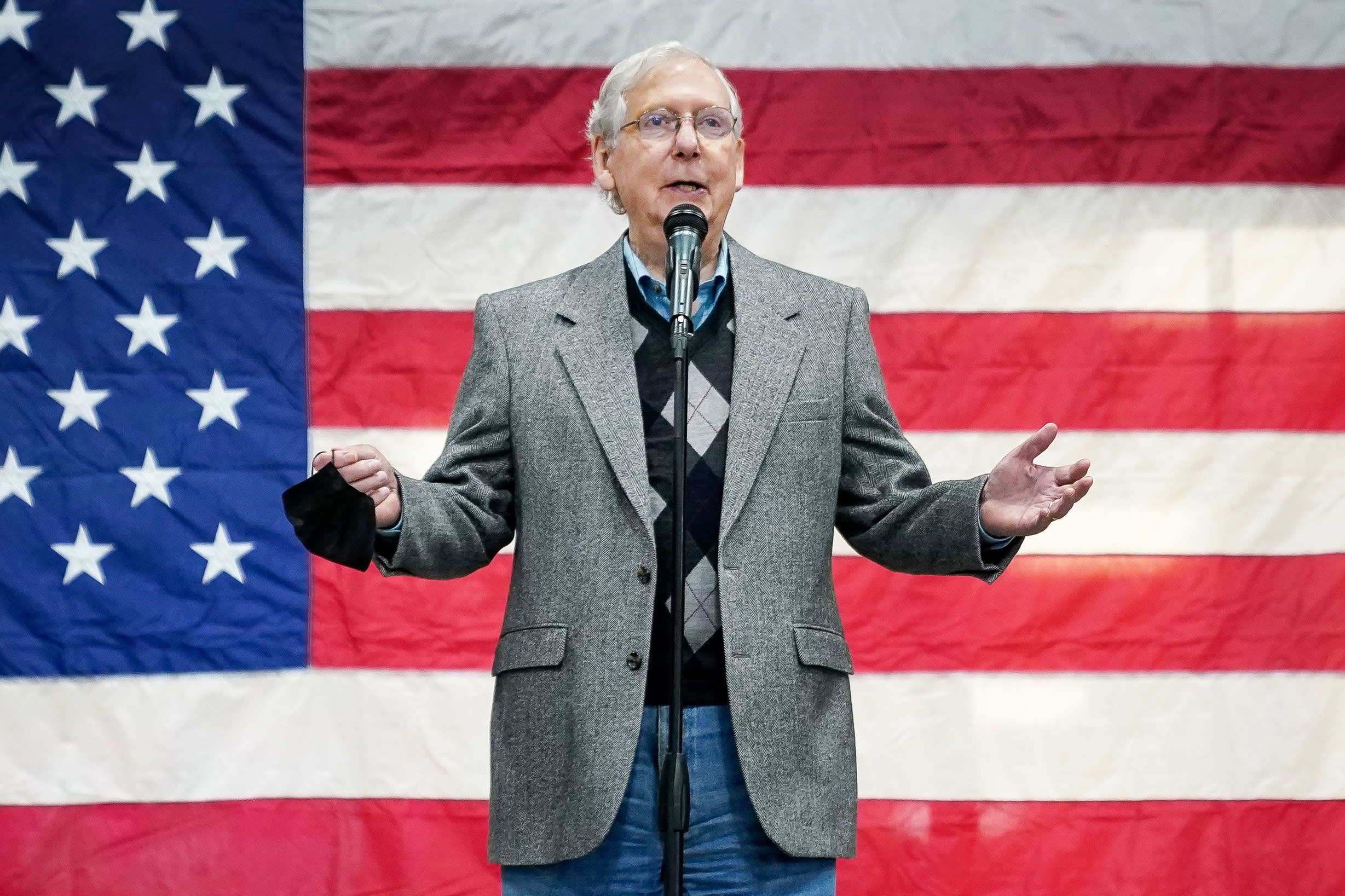McConnell foresees coronavirus stimulus in 2021, while Pelosi and Trump push for a deal sooner

Senate Majority Leader Mitch McConnell (R-KY) speaks at a campaign event in Florence, Kentucky, October 28, 2020.
Bryan Woolston | Reuters
The top policymakers in Washington sent mixed signals Friday about how quickly Congress could pass new coronavirus stimulus after the 2020 election.
Progress toward a relief deal ground to a halt in recent weeks as Republicans and Democrats differed over how much money they need to inject into efforts to slow record new infections in the U.S. and boost a sluggish economy. Despite the impasse, negotiators have acknowledged they will need to send aid in some form eventually.
Senate Majority Leader Mitch McConnell and House Speaker Nancy Pelosi, who have not agreed on much related to the virus response in recent months, differed again Friday when asked about when stimulus could pass. The Kentucky Republican told radio host Hugh Hewitt that he expects to handle relief “right at the beginning of the year,” with legislation “targeted particularly at small businesses that are struggling and hospitals that are now dealing with a second wave of the coronavirus.”
Pelosi said she expects Congress “certainly will have something [done] at the start of the new presidency.” But the California Democrat told MSNBC that “we don’t want to have to wait that long, because people have needs.” The winner of the presidential election will get inaugurated on Jan. 20, and the speaker said she believes Democrat Joe Biden will take the oath of office that day.
At the same time, President Donald Trump pushed for even more rapid passage of stimulus than the top Senate Republican and Democrat did. Speaking to reporters Friday, the president claimed “we will have a tremendous stimulus package immediately after the election.”
The mixed messages follow a day of tense correspondence between Pelosi and the Trump administration as the sides struggle to break a monthslong impasse over stimulus. How they could craft a bipartisan deal capable of passing the Republican-held Senate and Democratic-controlled House remains unclear.
While Pelosi is widely expected to lead a Democratic-majority in the House next year, the Senate and White House both could change hands after Tuesday’s election.
Congress has failed to pass new relief funds for months despite a lingering economic crisis that has left millions unemployed and scrambling to cover bills. New Covid-19 cases on Thursday hit another U.S. record — 88,521, raising the specter of fresh restrictions to limit the spread.
Despite a third-quarter economic rebound to the tune of a record 33.1% annual GDP increase, economic growth is still 3.5% below its level at the end of 2019 before the virus hit the U.S.
Once-cordial relations between Pelosi and Treasury Secretary Steven Mnuchin appeared to grow more bitter this week. On Thursday, the Democrat sent the Treasury secretary a letter saying the White House has not given her expected responses about a range of lingering relief issues.
They include state and local government aid, a national testing strategy, unemployment insurance, liability protections for businesses and tax credits for families.
Mnuchin in turn accused Pelosi of pulling a “political stunt” after what he called a long effort to find common ground and offer “reasonable compromise positions” on the topics she mentioned.
Pelosi downplayed any personal tension between her and Mnuchin on Friday.
“It doesn’t matter what our relationship is, it matters what the truth is. And the truth is that this administration has failed miserably in responding to this virus,” she told MSNBC.




